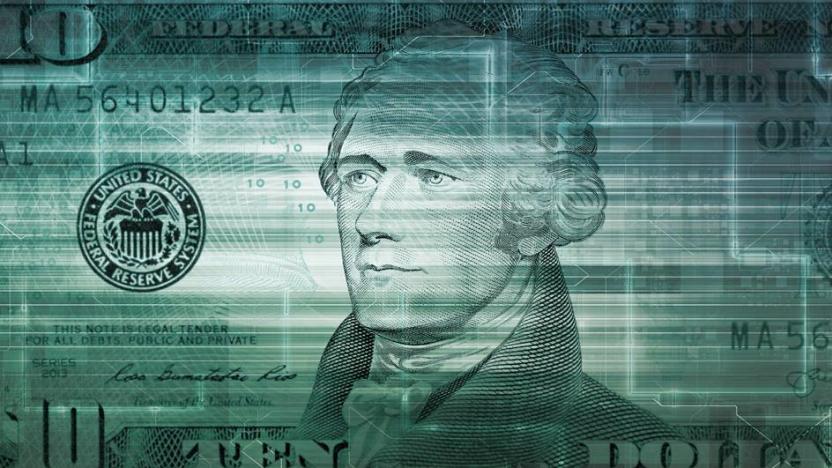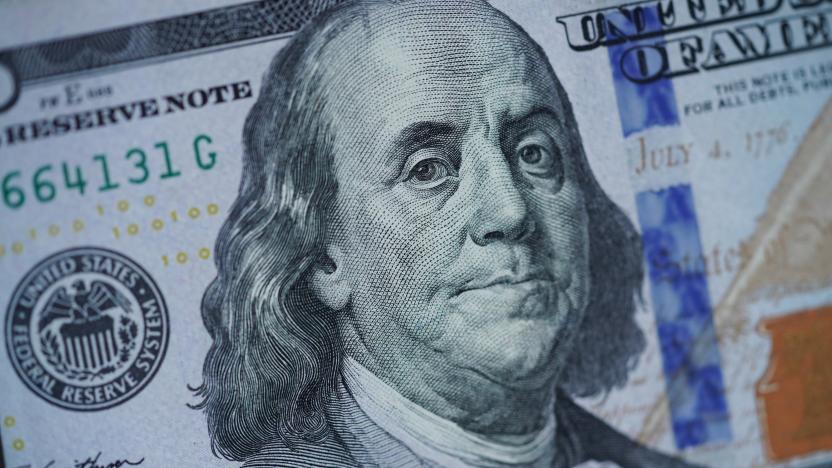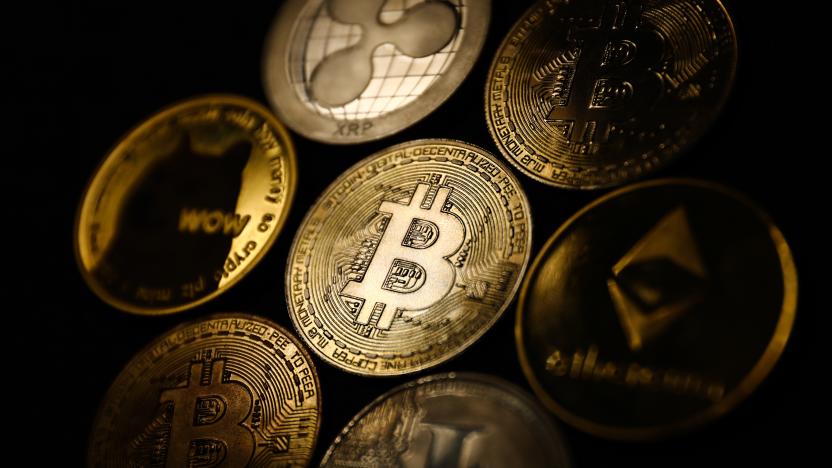Federal Reserve
Latest

Boston's Federal Reserve says it has solved technical challenges of a 'digital dollar'
The US Federal Reserve is continuing its research into a "digital dollar" and has unveiled a technical specification for how it might work.

Federal Reserve study offers no answers on creating a digital dollar
The US Federal Reserve has published its long-in-the-making digital dollar study, but didn't say if it would create that currency.

US regulators aim for greater legal clarity surrounding cryptocurrency
US banking regulators have shared their cryptocurrency priorities for 2022, including more clarity on the legality of digital assets.

It doesn’t matter if China hacked Equifax
On Monday the FBI and AG Barr announced "an indictment last week charging four members of the Chinese People's Liberation Army (PLA) with hacking into the computer systems of the credit reporting agency Equifax and stealing Americans' personal data and Equifax's valuable trade secrets." China's military refutes the charges.

Federal Reserve has no authority to regulate Bitcoin, according to Chairwoman
Well, it doesn't appear that the Federal Reserve will be stepping in to regulate the volatile virtual currency Bitcoin any time soon. According to the new Fed Chairwoman Janet Yellen, the central banking system has no authority over Bitcoin. In testimony before the Senate Banking Committee she said that, "this is a payment innovation that is taking place entirely outside the banking industry." Without a central issuer or operator it's incredibly difficult to successfully regulate and supervise these types of currencies. Don't think that Bitcoin is untouchable, however. Yellen went on to say that, "it certainly would be appropriate, I think, for Congress to ask questions about what the right legal structure would be for virtual currencies that involve nontraditional players." Legal efforts to restrict Bitcoin have already taken off in other countries, and Senator Joe Manchin (a Democrat from West Virginia) has suggested banning the crypto-currency in the US. While an outright ban of Bitcoin seems unlikely given its growing acceptance, Japan's Ministry of Finance has indicated that it could work with other nations to establish a set of international regulations. If a set of rules could be agreed upon at an international level, it could prevent people from taking advantage of loopholes that only serve to encourage instability and abuse. The public posturing and legal wrangling is hardly surprising following the shutdown of Mt. Gox, the largest Bitcoin exchange in the world. The firm currently holds 744,000 Bitcoins (roughly $423 million), and the future of those funds is shaky at best. Whether or not the currency continues its ascension to legitimacy may rest on the results of the Fed's investigation into Mt. Gox. But it seems increasingly likely that the government will step in to put some restrictions on Bitcoin, sooner rather than later. (Photo by George Frey/Getty Images)

U.S. government hits snag printing new $100 bills, prints old ones instead
The U.S. Treasury Department may have been eager to open the doors to its money printing factory back in July to show off its brand new $100 bills, but it looks to be a decidedly different story today. As CNBC reports, all of the added security measures have apparently been harder to print than expected, and have resulted in a creasing problem that has left some bills with a blank portion on the face. The real problem, however, is that it's not clear how many bills have the flaw, which has forced the department to "quarantine" some 1.1 billion bills until they can be sorted -- one person familiar with the matter says as many as 30 percent were affected at the height of the problem. As you might expect, that accounts for a pretty big chunk of the bills intended for circulation, which has forced the fed to print some more of the older $100 bills that still feature Bush Treasury Secretary Hank Paulson's signature in the meantime.

Using the Daily Quests as a way of supplying gold
We've been talking about this for a little while, but the always insightful Relmstein has a nice summary of what's surely one of the ideas behind Blizzard's daily quests -- they serve as a kind of "Federal Reserve rate" for Azeroth, in that Blizzard can control inflation and gold flow by routinely pouring money into the economy. Before daily quests, Blizzard had big problems with gold sellers -- raiding cost a lot of money, as did the various mounts, reputations, and everything else our characters had to buy. But really the only way to get gold was from farming and grinding, both things almost nobody wanted to do.Enter daily quests -- with just a few minutes effort, players could cash in and pick up a nice chunk of gold. And with the coming of patch 2.4, daily quests are everywhere. Do an hour of quests and you've easily got sixty gold, do even more and the gold starts pouring in. Which means the reasons for gold buying and selling are shrinking. Of course, it won't erase gold buying completely (some people will always cheat, no matter how little effort it takes them to earn the gold legitimately), but the barrier to earning more gold is lowered that much more.But, says Relmstein, the Federal Reserve's control is a two-way street. Once you start pouring too much gold into an economy, then you have to start dealing with inflation. He expects that the Sunwell dailies will start to disappear from the game as of Wrath, because if not, then Blizzard will have to go the other way to control inflation: raise prices. Think 5,000g is a lot for a flying mount? In the future, if the amount of gold in the game stays the same, it may be even more.




